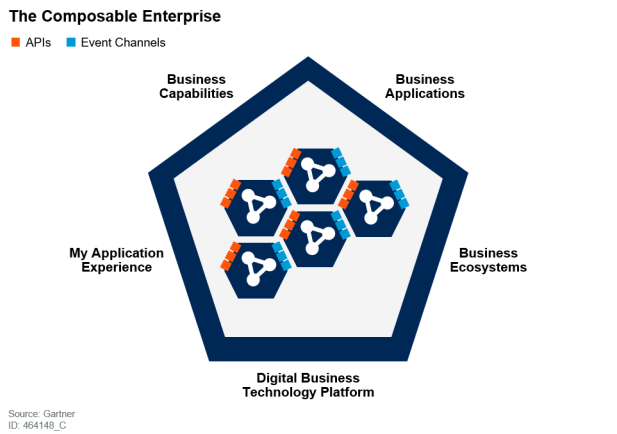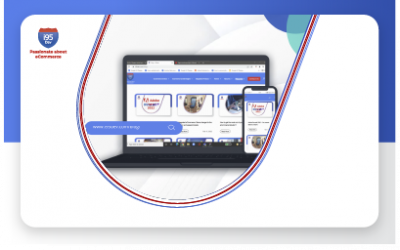Composable Commerce: Future of eCommerce and
Need for Modern Commerce

In this hyper-evolving tech world, each time we look for the latest technology, it is just impossible not to find a new technological term. Similarly, Composable Commerce is the new buzz term in the market every competitive merchant wants to know.
This quick read we will help you understand:
What is the Composable Commerce approach?
How are Merchants benefitting from the Composable Commerce approach?
Need for Composable Commerce and why is it going to be the future?
Traditional Commerce issues solved by Composable Commerce
What is Composable Commerce?
Let’s start by answering few simple questions
- Do you buy something for yourself that doesn’t fit you? (i.e your size or your likes?)
- Similarly, would you invest in something that is not made for your unique business requirements?
- Would you be happy to pay for functionalities that you hardly used or haven’t used at all?
If your answer to all the questions is a BIG NO, Composable Commerce is a perfect approach for your eCommerce business.
In simple words, Composable Commerce is a fresh approach that enables eCommerce businesses to select and group the “best of breed” commerce solutions and combine them to suit their business-specific requirements.
Composable commerce uses modern technologies and approaches like MACH (microservices, APIs, Cloud, and Headless) and JAMstack (Headless, APIs, & Markup) architectures to adapt to the rapidly changing market dynamics now and in the future.
How are Merchants benefitting from the Composable Commerce approach?
According to Gartner, by 2023, organizations that have adopted a composable approach will outpace the competition by 80% in the speed of new feature implementation.
Business-centric approach
Composable commerce is a business-centric approach that quickly helps eCommerce merchants make necessary changes to the digital strategy. Business models across the eCommerce industry are the same; however, the kind of user experience and functionalities you would like to cater to customers is unique. The existing method of implementing the same set of the stack from a single vendor forces you to apply the same set of functionalities as your competitor. In such scenarios, Composable Commerce has proven to be the right choice as it makes the complete process agile, fits your unique business requirements, creates an outstanding customer experience without heavy dependency on IT.
Modular architecture
Composable Commerce enhances agile delivery of processes. It helps in making changes faster, and the approach is result-oriented.
Despite all the quick changes, the Composable Commerce approach helps in maintaining a good customer experience.
Merchants usually have a tough time maintaining a good user experience across all the sales channels. Composable Commerce’s modular architecture greatly benefits omnichannel business models as it takes care of every sales channel and its unique requirements. It allows merchants to pick technologies, features, and functionalities according to the sales channel and its target audience.
Build an open ecosystem
Composable Commerce enables you to build an open ecosystem by selecting the “best-of-breed” tech solutions and vendors. It allows complete freedom from the pre-built solution packages and lets you create the best fit for your business. You can assemble various accelerators, 3rd party applications, pre-composed solutions, and a library of the best features and unique functionalities.
Need for Composable Commerce and why it is going to be the future
Both merchants and customers embraced the traditional commerce platforms as it was the first time for merchants to do business online, and customers also experienced it for the first time. For decades, merchants offered standardized and simple features, while customers also did not expect much and were quite satisfied.
But now, the times have changed. Below are the reasons why there is a need for Composable Commerce and why it is predicted to be the future.
Reason 1
In this new era, customers no longer consider B2B and B2C businesses to be different in terms of their expectations of experiences. B2B businesses try hard to get a seamless experience similar to B2C businesses, but they face many issues to accomplish it.
The reason being many B2B companies have complex business processes that become major roadblocks. These complex business models have a hard time fitting into the traditional commerce platforms with pre-existing functionalities that fail to adapt to their specific requirements.
Reason 2
One term around which all businesses revolve- Customer Expectation, has hit the roof over several years. Major eCommerce giants have made it difficult for SMB’s to cope with their user experience level.
Customers today expect an equally seamless experience on every device they use anytime, anywhere. Businesses are forced to use the latest technology every time with a rapid speed and ease while keeping up with the hyper-competition in the B2C market.
Now why a Composable Commerce approach will solve these issues?
Businesses have agreed to the truth that, no one vendor can provide all the business-specific requirements. And by selecting a single vendor, merchants end up providing basic functionalities similar to the competitors.
Composable Commerce approach includes all the touchpoints existing in a traditional commerce approach, like, order management, inventory management, product information management systems, tax, shipping, and fulfillment management systems from vendors like NetSuite and Salsify TaxJar, Avalara, Taxamo, etc.
This enables you to build an eCommerce store sticking to your unique business requirements to provide a customer experience like no other competitor in the market.
Interested to know more about Composable Commerce? Talk to our experts now!
Recent Blogs
Enhancing Shipping Precision with Custom Shipping Groups in Adobe Commerce/ Magento
Enhancing Shipping Precision with Custom Shipping Groups in Adobe Commerce/ Magento Author Category Share Three things matter the most when it comes to eCommerce shipping: speed, accuracy,...
Managing Massive Product Catalogs: Why Synchronization is the Key to Efficiency
Managing Massive Product Catalogs: Why Synchronization is the Key to Efficiency Author Category Share The automotive aftermarket industry is vast and highly competitive, requiring businesses...
A Complete Guide to Seamlessly Integrating Adobe Commerce with NetSuite
A Complete Guide to Seamlessly Integrating Adobe Commerce with NetSuite Author Category Share Integrating Adobe Commerce (formerly Magento) with NetSuite ERP can transform the way businesses...




